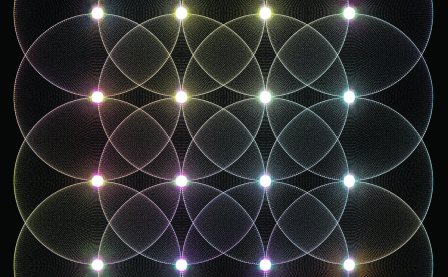Recently, I somehow ended up watching Fantasia. Until then, the strangeness of several of this film’s chapters never occurred to me. Why did the animators choose to depict the creation of Earth and the evolution of dinosaurs for The Rite of Spring? Stravinsky’s ballet specifies that the subject is a series of rituals, including a final sacrifice. Why depict scenes so wildly different from what Stravinsky (and the other composers) clearly intended? So much of the film uses music that already offers a visual accompaniment, but the animators decided to ignore these instructions. And yet, The Rite of Spring’s scenes of fracturing rock, its hand-painted fluid dynamics of lava spilling into the sea, its presentation of one-celled organisms evolving and walking out of the primordial soup, remain some of the most compelling sequences in the film. Of course, the answer to all of these questions is that the music here is abstract, which means that its audio can fit whatever visual matter fits its mood and rhythms. The animations somehow perfectly fit this piece.
NY group Jonas Reinhardt’s Ganymede, which combines both abstract visuals and abstract music (insofar as it contains no lyrics), present this marriage in a slightly different light. On the one hand, the stated subject of its visual depictions (created by six Brooklyn-based filmmakers: Antonia Kuo, Josh Lewis, Kenneth Zoran Curwood, Shona Masarin, Ben Mosca, and Lily Zue Sheng) is the possible lifeforms that may hide under the icy surface of Jupiter’s moon Ganymede. On the other, without this bit of data, the visuals, beautiful and strange as they may be, appear to merely provide a narrative-free abstract visual accompaniment to the audio work. The film’s parts could each find different subjects, and the music any number more. The music of Ganymede might well accompany a silent space opera, a journey by train through a bright futuristic cityscape, a flight over a mountainous landscape, or a peek into virtual reality.
This isn’t a negative critique of either Jonas Reinhardt’s composition or the films of Ganymede; both aspects of this project contain moments of great beauty, though the films perhaps showcase more variety than the music, which makes extensive use of similar synthesized textures throughout the work. But the piece does raise an important question in the experimental music and film world: why not be content with abstraction? Sure, the visual and sonic qualities the artists arrived at may have emerged out of the original concept of Ganymedian lifeforms, and perhaps it would be difficult to delineate various works if everything lacked a title. But is it only because it is easier for the audience to understand works that feature a conceptual shell? Does the audience tend to flee abstract works because of their perceived lack of grounding?
Depicting and evoking alien life forms with radically different lives than ours certainly provides a difficult project. Both aspects of Ganymede imaginatively attack this problem, though any part of this work could stand on its own independently of its original conceptual context and its original visual or musical accompaniment. Concept albums and experimental films of quality tend to work this way. But it’s their inclusion as a package that renders these pieces a solid unit, inseparable. And yet I expect that many will at least experience the soundtrack separately, given that Ganymede’s packaging contains an LP version. Perhaps in listening, audiences will construct their own narratives for it, as Fantasia’s creators did.
Before I knew that a film accompanied the music, I imagined them soundtracking a probe’s journey through Ganymede’s atmosphere. And this may be the ultimate success of the project: abstract music such as Jonas Reinhardt’s synthesis-laden kosmische is strikingly visual because it’s so alien that our visual imagination runs wild. Therefore, they enlisted filmmakers to depict that alien quality, giving them free rein to imagine lifeforms to exist in the music’s environment. The concept, finally, arises out of the project, a finishing touch that encapsulates the already strong links between Ganymede’s media.
More about: Jonas Reinhardt




